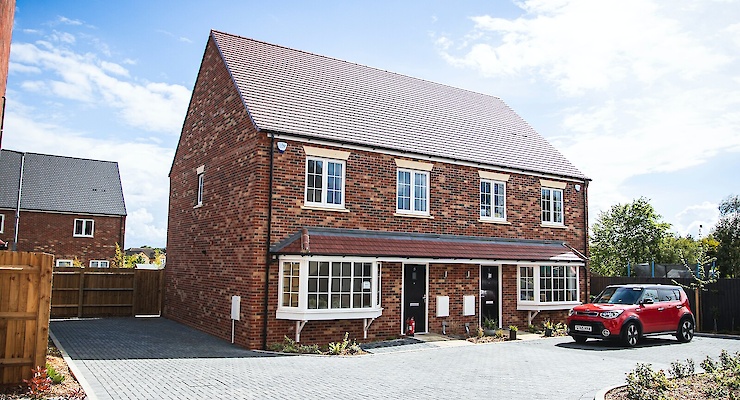


Head of Content

Mortgage Advisor & Director
What does leasehold mean?

Leasehold means that you own the property, but the freeholder owns the land on which it lies. Owning a leasehold property means you are entitled to live in the property until the lease runs out. Most flats in the UK are leasehold, whereas most houses are freehold.
Generally speaking, when it comes to leasehold property, the freeholder bears some responsibility for the maintenance of the property; however, the leaseholder is typically required to make a financial contribution. This payment is often paid annually and will go towards the upkeep of shared areas, such as the roof or communal gardens, with the specific responsibilities laid out in the leasehold agreement. Internal maintenance is the responsibility of the leaseholder.
Any considerable changes to the property such as an extension or conservatory will need to be approved by the freeholder before work can begin with a leasehold property.
What's the difference between leasehold and freehold?
Leasehold means that you own the property for a specified period, but not the land on which it stands. The duration of a leasehold can be years, decades or centuries, and the longer the term, the more valuable the leasehold is. As a leaseholder, you will be responsible for all internal maintenance, but shared or communal areas generally lie with the freeholder.
Freehold means that you own the property and the land it stands on outright, with no time limit. As a freeholder, you are wholly responsible for the maintenance of the land and property.
Are leasehold flats a good investment?
There are several drawbacks to leasehold properties, and they have received plenty of bad press over recent years. Most notably, following the Grenfell Tower tragedy, leaseholders living in flats with similar, dangerous cladding are struggling to sell, remortgage and even secure a loan to fix the problem.
Costs can also quickly escalate when buying and selling a leasehold property. It can also lengthen and lead to increased costs when buying or selling the property.
That being said, the decision to invest in a leasehold property will be on a case by case basis, and depending on the circumstances they may provide a worthwhile investment. The rules have changed recently regarding leasehold arrangements in favour of the leaseholder.
What is 'share of freehold'?
Some flats are sold on a share of freehold basis, which means you will share the freehold with others in the building and leasehold interest in the flat. The freehold title is typically registered as a limited company, with each flat owner as a shareholder. Even if you have a share of freehold agreement, you will still need to abide by the flat's lease terms.
Share of leasehold agreements can be complex with significant administration requirements. As such, we would recommend engaging an experienced solicitor to ensure any potential issues are identified early on in the process.
What are the benefits of share of freehold?
Unlike a standard leasehold property, having a share of freehold means that the co-freeholders can agree to grant 999-year leases.
With typical leasehold properties, the lease's value deteriorates over time as the expiry date gets closer to being realised. The ability to grant long leases will help to protect the value of the property. Secondly, as you will share the freeholder responsibility, you will benefit from more control over decision-making regarding maintenance in comparison to being a leaseholder only.
Are leasehold rules changing?
As of the 7th January 2021, leaseholders will find it easier and cheaper to buy their homes. As part of the most significant reforms to English property law in 40 years, millions of leaseholders will be given the right to extend their lease by a maximum term of 990 years at zero ground rent. The new measures announced in January 2021 are designed to make homeownership both fairer and more secure.
Are leasehold properties hard to sell?
Leasehold properties are not necessarily harder to sell; however, the conveyancing process is longer as there is more legal work involved. The conveyancer will need to perform additional tasks in comparison to a freehold property, including:
- Reviewing the terms of the lease
- Liaising with various parties, including the landlord, management company or residents' association.
- Identifying issues, disputes and planned work
- Ensuring there is alignment with the lender's requirements
The delays associated with leasehold properties can sometimes lead to the sale falling through, at any point in the chain.
Properties with leasehold agreements with less than 85 to 90 years remaining are difficult to mortgage. For leases with less than 80 years remaining, the cost of extending the lease increases significantly, which could add complexity and time to the sale.

Get your mortgage in principle certificate in 5 minutes
Can leasehold property be rented out?
Yes, depending on your leasehold agreement and mortgage conditions, you may be able to rent out your property.
What happens when leasehold runs out?
If the property's leasehold runs out, the ownership of both the property and the land will fall to the freeholder. Even if you have paid off your mortgage, the rights to the property will transfer to the freeholder, giving you no legal ownership.
Choosing an Adviser
Selecting a qualified and experienced mortgage adviser is of great importance. To choose a suitable adviser, evaluate their qualifications, experience, and reputation, and ensure they are regulated by the Financial Conduct Authority (FCA).
Read reviews from previous clients and make sure they provide a clear explanation of the products and services they offer, as well as the fees and charges associated with them.
Last updated 28 February 2024





























































